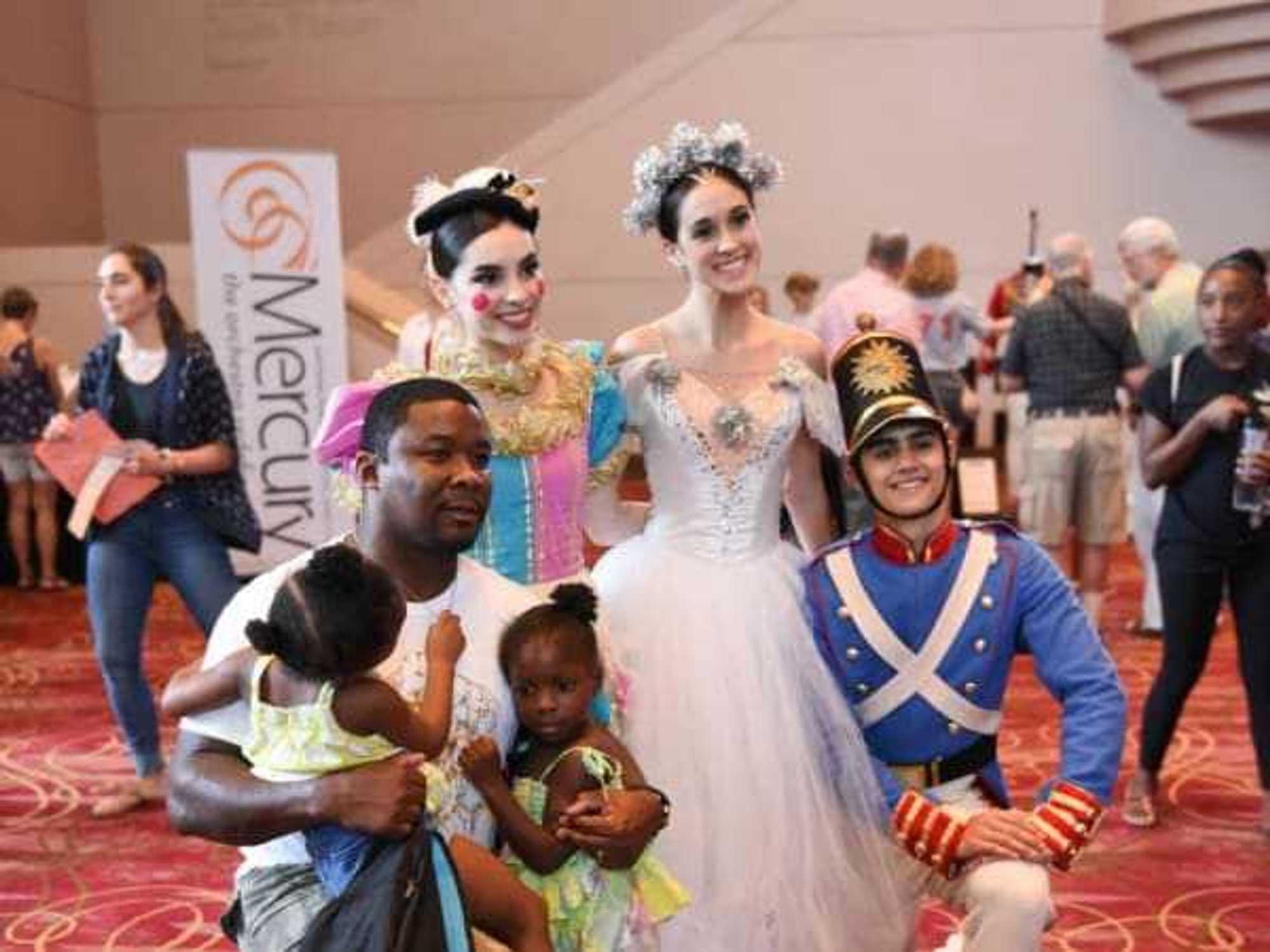best December art
8 vivid and eye-catching December exhibitions no Houston art fan should miss
December is the perfect catch-up time for Houston art lovers to see all that fall art we might have missed during a busy season. We also still have some end-of-the year surprises in store this month. Crux Australis 68.00 by Tomás Saraceno at Rice University
From monumental permanent installations just added to the Houston landscape, to a new winter exhibition, to Winter Street Studio artists coming back with new art stories to tell, we’ve got a lot of art still left to explore before 2024.
“WIP 2023: Winter in Progress” at Winter Street Studios (now through February 10)
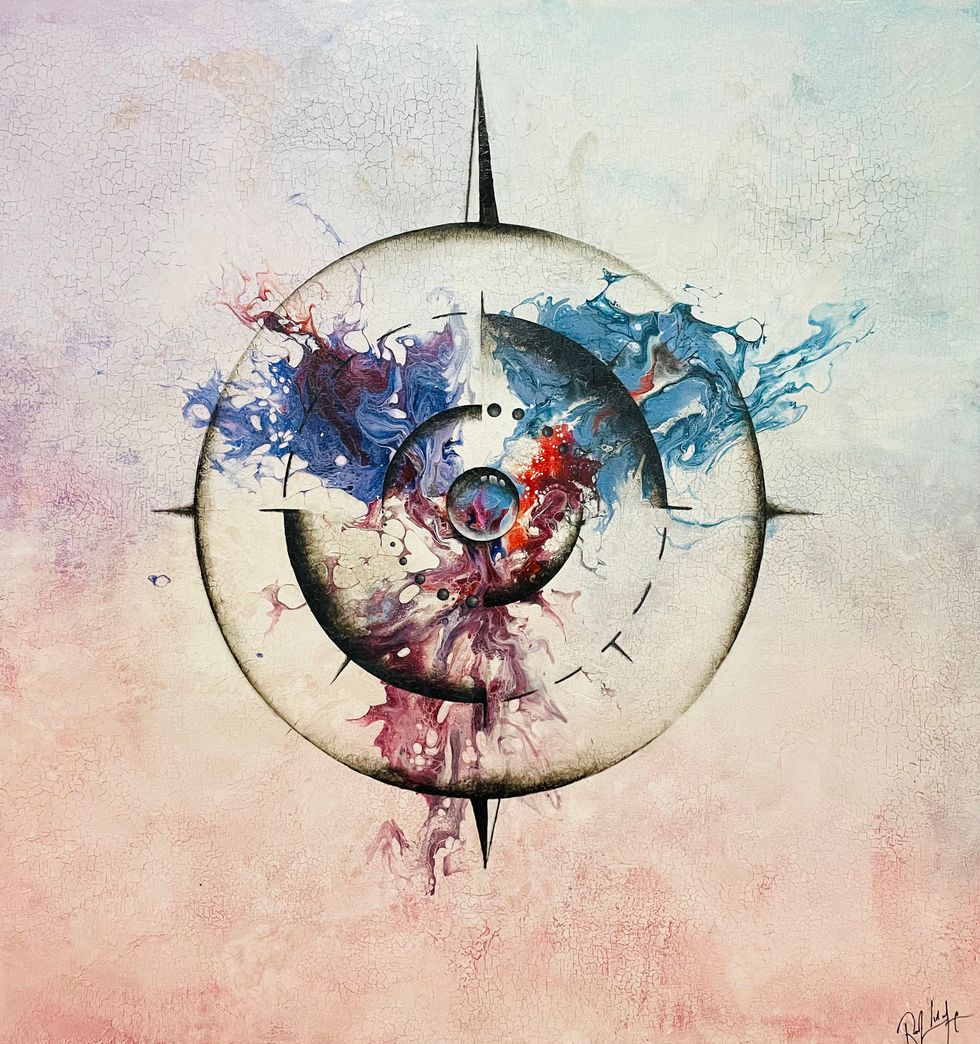
For this first exhibition of the tenant artists at Winter Street Studios since the devastating fire almost one year ago, the artists are leaning into that universal truth that art and artists are always a work in progress.
Rebuilding the Winter Street Studios is also a work in progress, but fortunately many artists have finally returned to Sections A and B of the building. This exhibition is a testament to their resilience and their dedication to continue their art making.
“Jennifer Steinkamp: Orbit 11” at the Museum of Fine Arts, Houston (now through February 18)
Over the years, the vast, open space of the Weiss Building’s Cullinan Hall has been the temporary home for some of the most beautiful, immersive installations and large-scale video projects MFAH presentations.
Now for a winter treat, the museum presents this animated video artwork by Jennifer Steinkamp, whose single-channel video trees have grown in Cullinan Hall before. This “Orbit 11” work depicts the celestial mechanics of a fictional planet spinning through the span of one year. Steinkamp fills the foreground with representations of trees seen from below, as their branches, flowers, and leaves are blown by turbulent winds.
Over time, all four seasons — spring, summer, fall, and winter — follow one another in a rapid cycle of birth, decay, and rebirth. As the seasons progress, this cycle of nature becomes one with the heavens above.
“THIS WAY: A Houston Group Show” at Contemporary Arts Museum Houston (now through March 24)
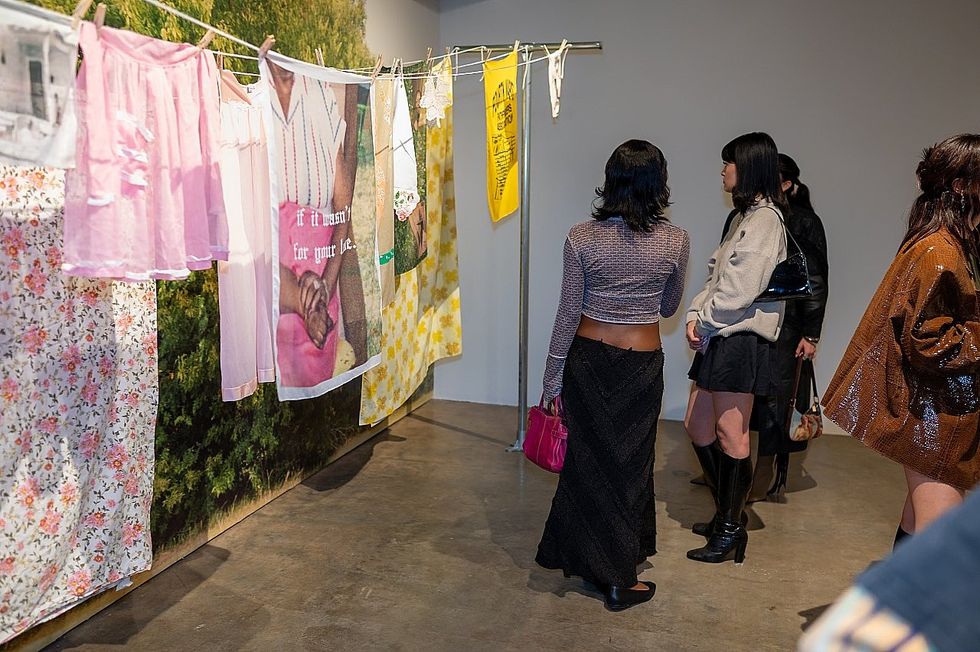
History inspires in this new exhibition, as the CAMH asked Black artists to examine innovative ways of participating in the storytelling of their legacy and heritage of Houston Freedmen’s Town. (Located in the now Fourth Ward, Freedmen’s Town was the first settlement of freed Black People in the city of Houston.)
As part of the process for creating new work focused on the history and legacy of Freedmen’s Town, the artists were paired with history research fellows, who helped the artists explore the archives African American History Research Center at the Gregory School.
While working in a variety of different mediums, the artists in the exhibition developed an understanding of how to relate to the one of the first land in Houston that welcomed Black freedom since America’s founding. Expect some riveting imagery in this pivotal new exhibit.
Crux Australis 68.00 by Tomás Saraceno at Rice University (permanent public display)
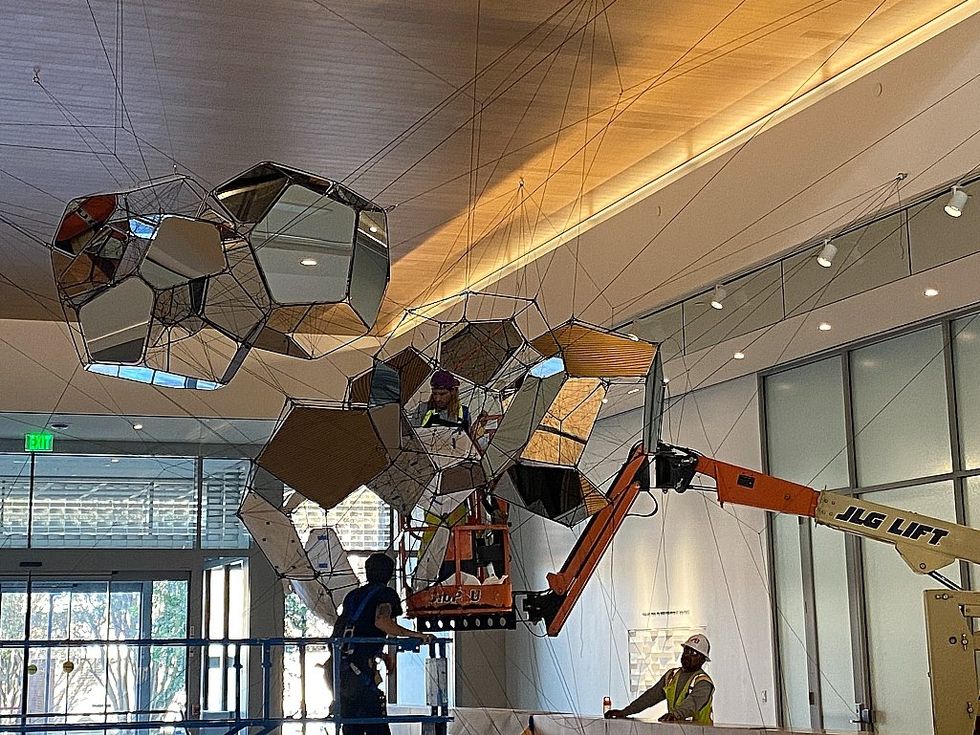
Image courtesy of Museum of Fine Arts, Houston
Seasons change in “Jennifer Steinkamp: Orbit 11” at the MFAH.
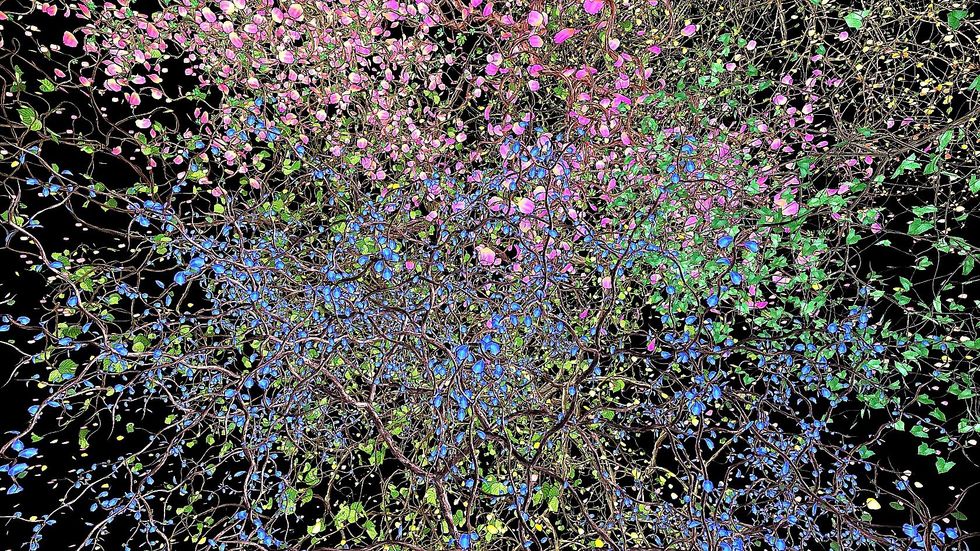
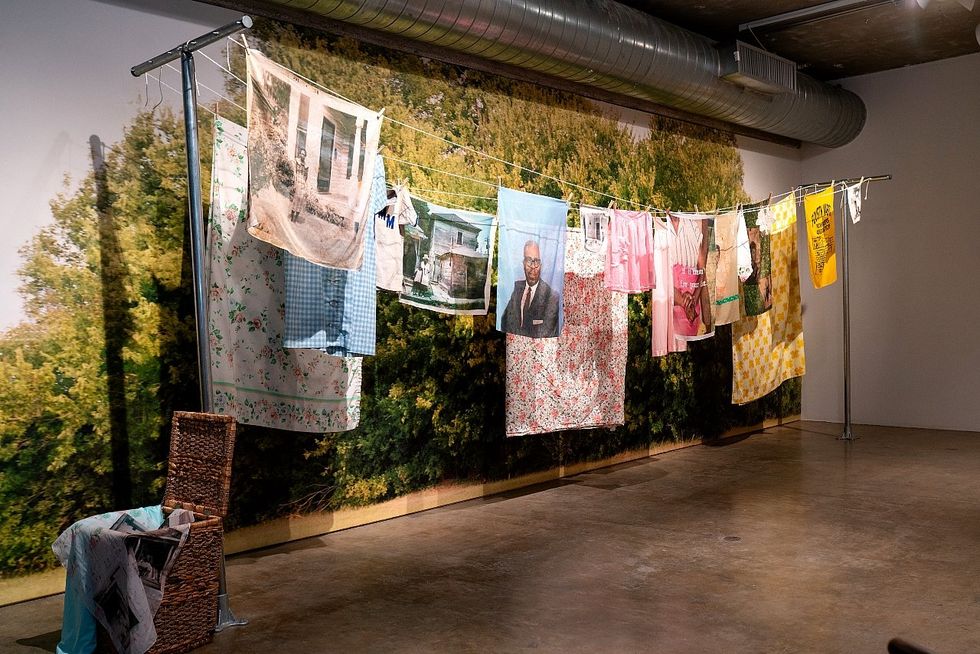
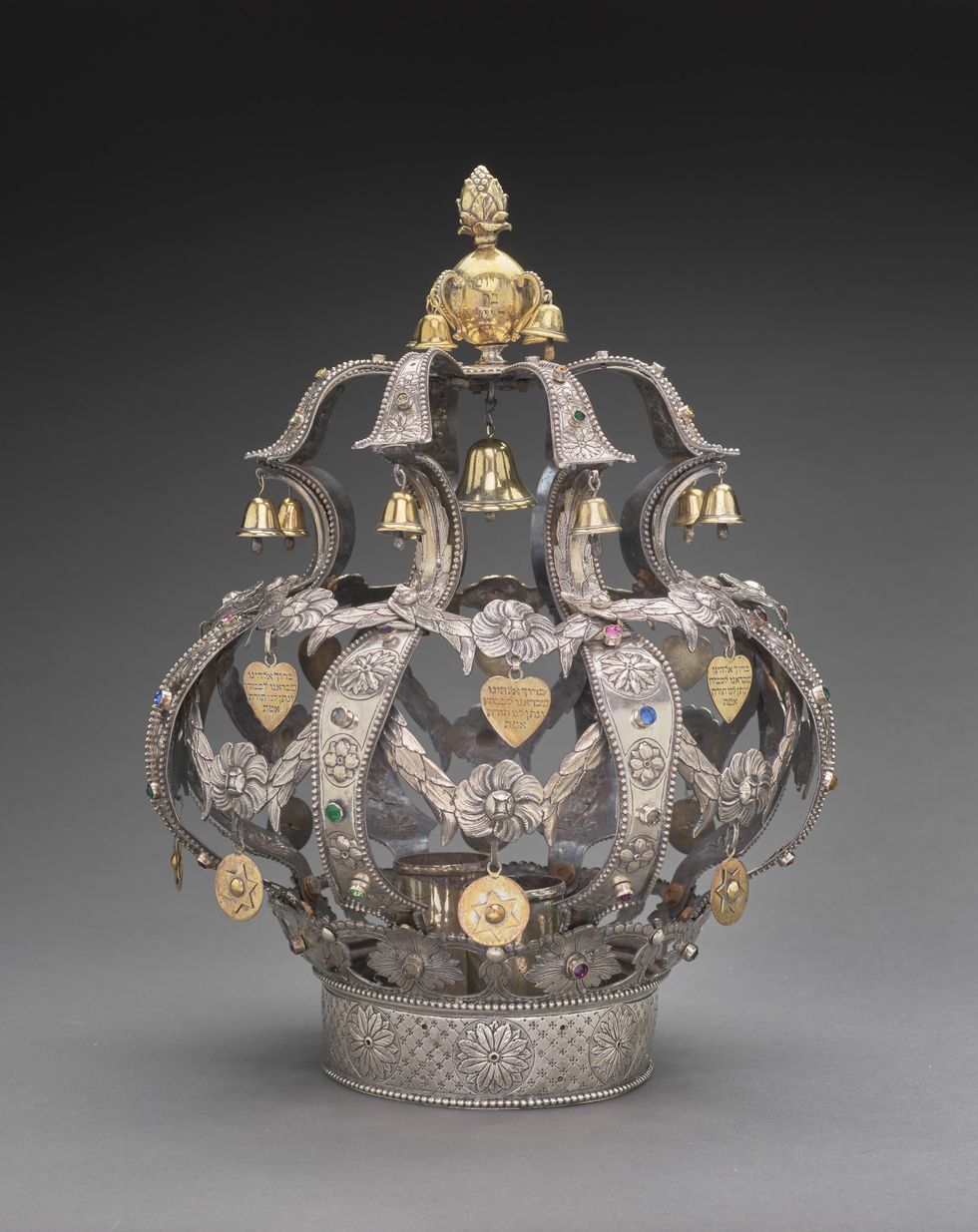
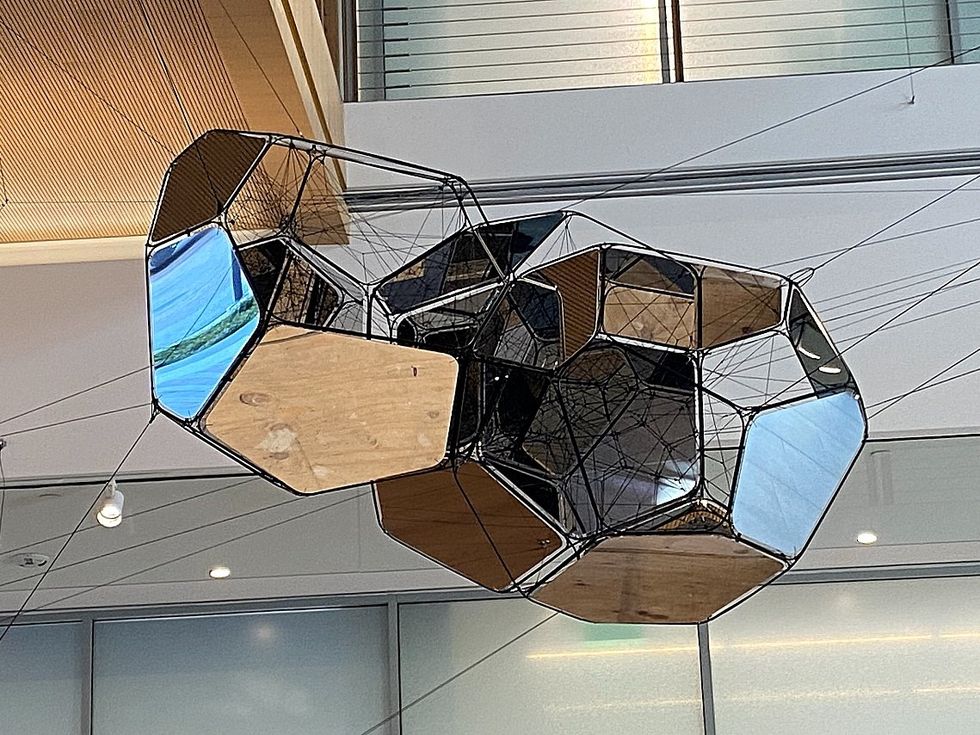
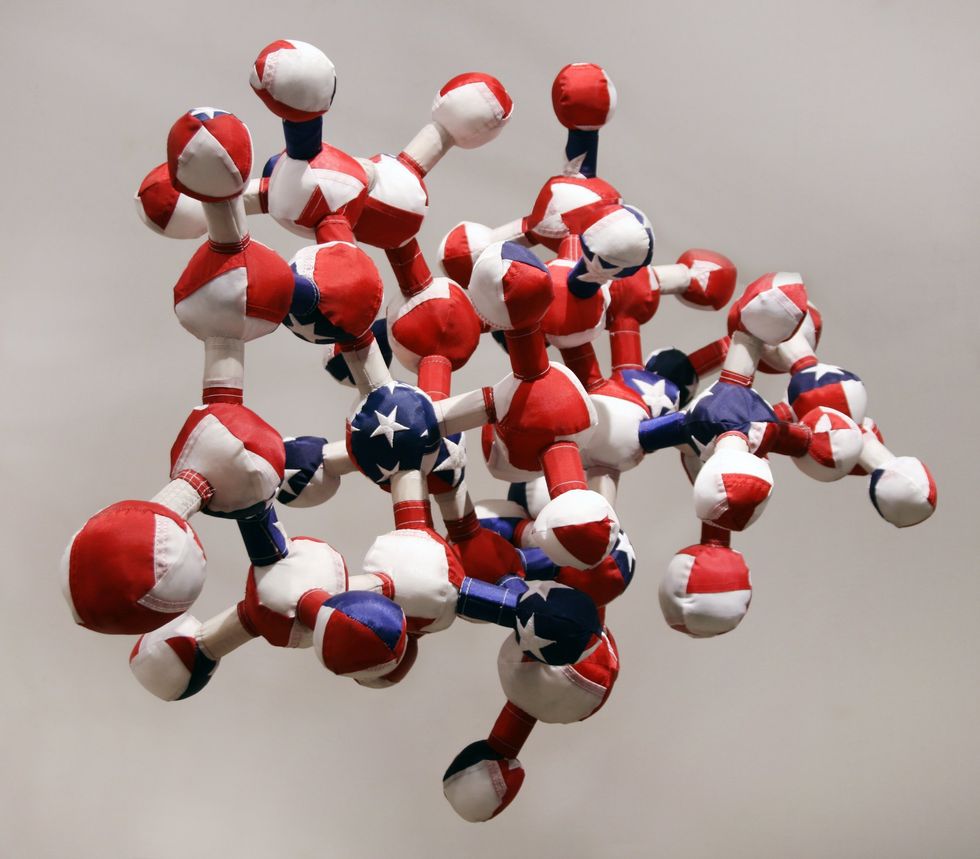
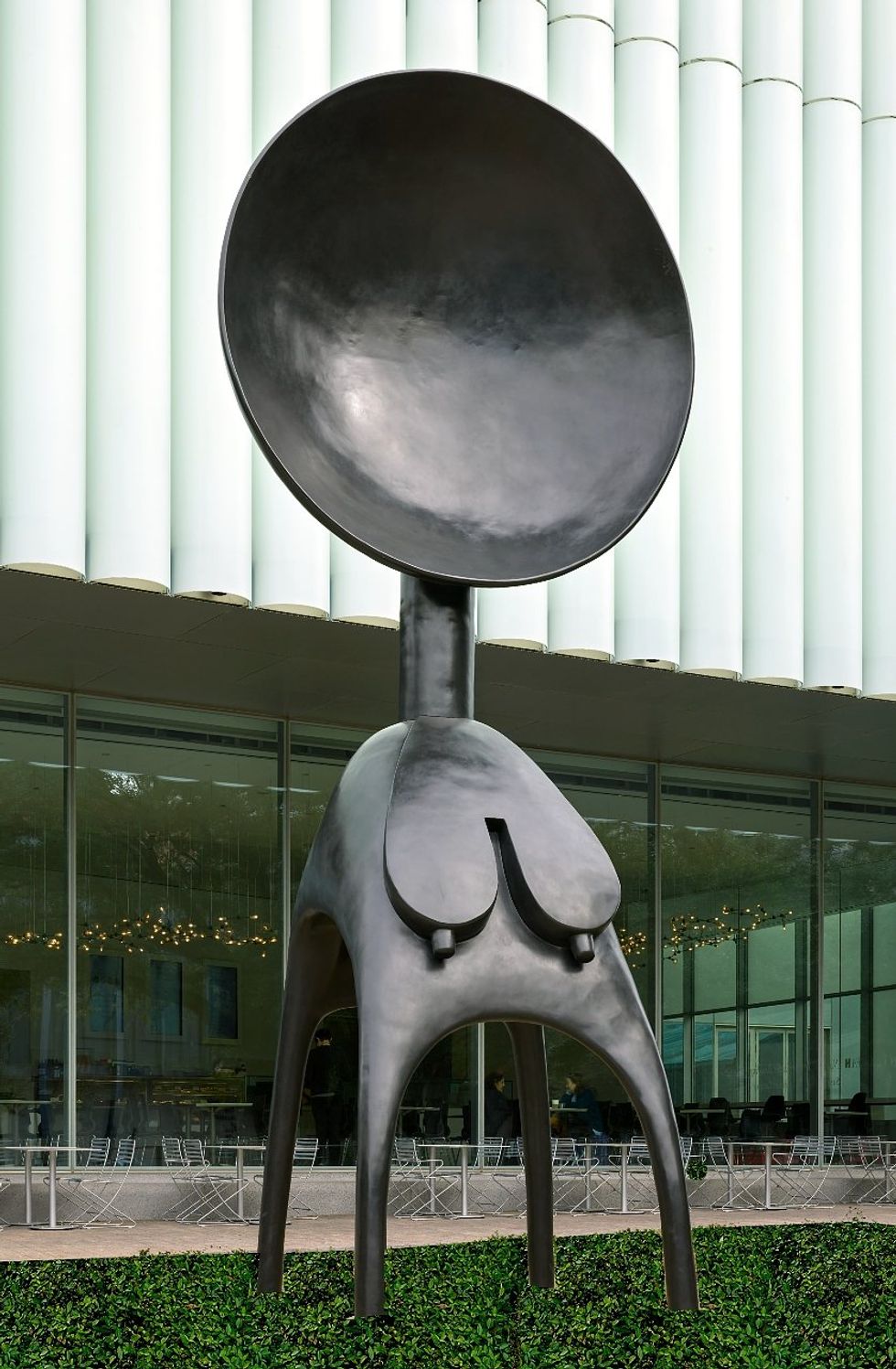
The Rice Public Art collection continues to grow, and this new permanent installation in the Ralph S. O’Connor Building for Engineering and Science illustrates its bloom throughout the campus.
Rice’s Moody Center for the Arts commissioned internationally acclaimed Argentinian artist Tomás Saraceno to create a site-specific installation for the O’Connor building; Saraceno thebn produced a piece that will span multiple stories.
Appropriate for the departments the building houses — and Space City — the installation’s title references the constellation with the highest concentration of bright stars, with the piece consisting of ten mirrored-surfaced shaped arranged in three clusters of interconnected polyhedrons inspired by the Weaire-Phelan structure.
The large-scale piece reflects the artist's decades-long research into the molecular, environmental, and metaphorical aspects of natural shapes like bubbles, clouds, spider webs, and honeycombs. A fitting fixture for the school of engineering and science.
Albert and Ethel Herzstein Gallery for Judaica opens at Museum of Fine Arts, Houston (permanent)
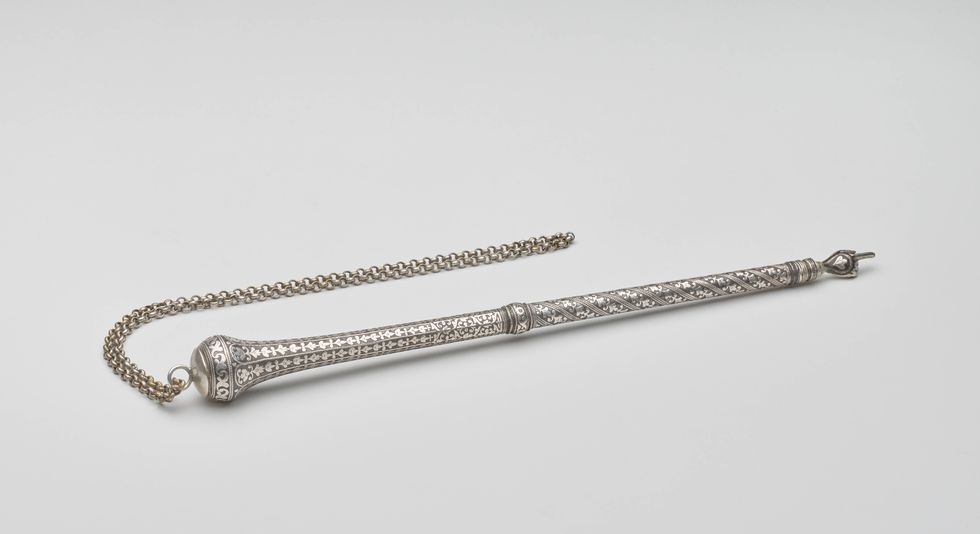
This new and permanent gallery at the MFAH — endowed by the Albert and Ethel Herzstein Charitable Foundation — will showcase art made for Jewish communities around the world to fulfill the practice of their faith. More than two dozen, mostly recently acquired objects take center stage for the inaugural exhibition in the gallery
Highlights include a rare 5th-century late-Roman oil lamp; a 14th-century illustrated Mahzor, a community holiday prayer book created in Mainz, Germany; an early-19th- century silver and gold Torah Shield produced in Munich; a silver Torah Crown made in Venice.
Other must-see pieces include a variety of silver Torah Finials made in Central Asia, Holland, England, and Germany in the 18th and 19th centuries, in addition to objects from Turkey and North Africa.
Notably, the gallery takes its place in the Weiss Building near the galleries devoted to the arts of Korea, Japan, India, China, and the Islamic worlds. “With the opening of the Albert and Ethel Herzstein Gallery for Judaica, we will complete the suite of galleries in the Caroline Wiess Law Building that have been developed over the past 15 years to reflect the diversity of Houston’s communities” noted MFAH director Gary Tinterow in a statement.
Simone Leigh’s “Satellite” at the Museum of Fine Arts, Houston (permanent public display)
As CultureMap recently reported, the MFAH is the first U.S. museum to acquire and install the nearly 6,000-pound bronze for permanent display by renowned American artist, Simone Leigh. The 24-foot sculpture now looms over the lawn of the MFAH’s Nancy and Rich Kinder Building.
A rising and shining American art star, Leigh is internationally renowned and acclaimed for creating art that addresses a broad range of historical periods and traditions, with references to vernacular and hand-made processes from across the African diaspora. Her headlining placement in the 59th Venice Biennale last year made her the first Black woman to represent the U.S. at what is considered arguably the most important art event in the world.
Following her inspiration, Leigh crafted Satellite much like the traditional D’mba (or nimba) headdresses created by the Baga peoples of Guinea and the ceremonial ladles of the Dan peoples, while also evoking themes of maternity and dignity. The sculpture also raises a towering reminder of how often the contributions and work of Black females are taken advantage of and overlooked across the globe.
“Inhaling the Spore” at Art League Houston (December 15- February 10, 2024)
This exhibition of new sculptures and drawings by San Antonio-based artist, Chris Sauter combines imagery of parasite organisms, specifically the cordyceps, the so-called zombie ants fungus with problematic internet memes.
The work touches on the role neurotransmitters and hormones play in the development of belief and how beliefs relate to notions of self and national identity.
This exhibition is a culmination of a larger body of work reflecting on the current political climate in the U.S. and is funded in part by a grant from the San Antonio office of Arts and Culture.
“And so it goes. . .” at Art League Houston (December 15- February 10, 2024)
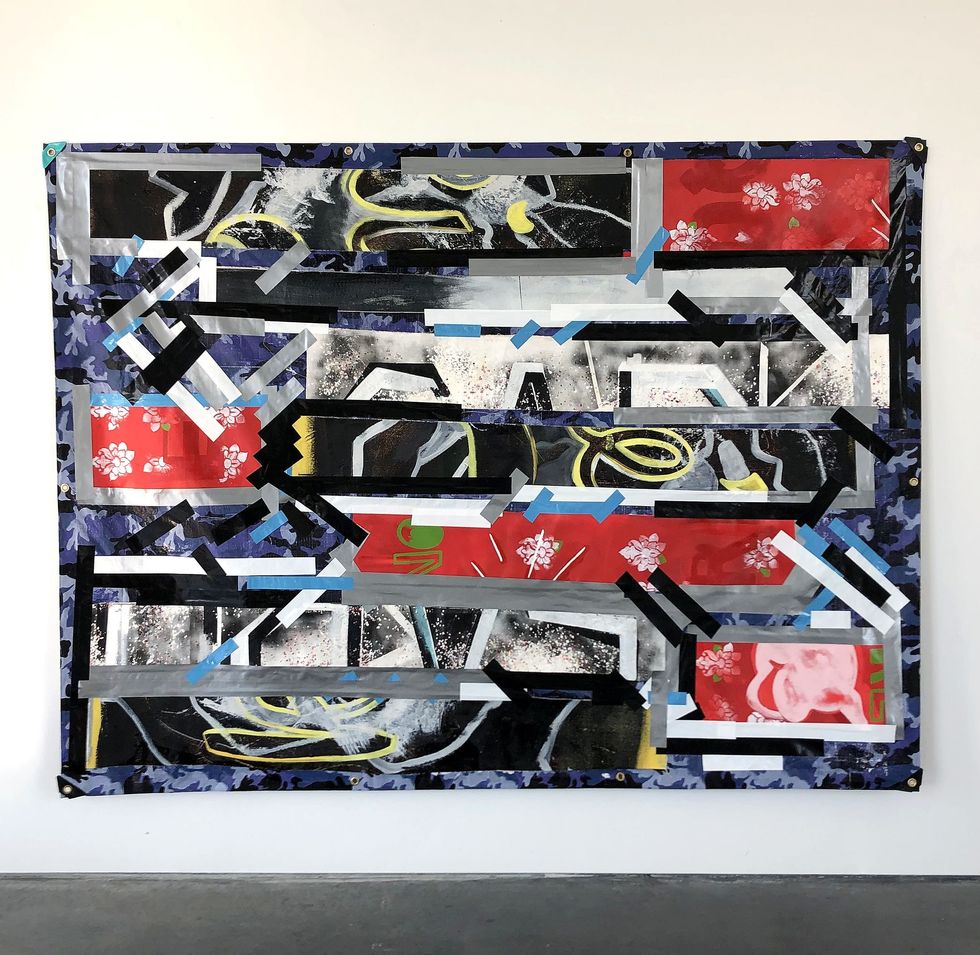
This exhibition of recent works by Houston painter and printmaker, Carris Adams, features a series of site-specific graphite wall drawings and large-scale painted collages.
The two bodies of work point to disappearing pasts, precarious presents, and unknown futures. Presented together, the wall drawings are minimal in color and partly as a backdrop for the paintings, while the paintings are overloaded in color, texture, mark-making, and fragmented language.
The Art League’s introduction to the exhibition notes that the paintings and drawings take on double, or triple, meanings as they seek to guide viewers to recall a place, image, or space through abstraction.
